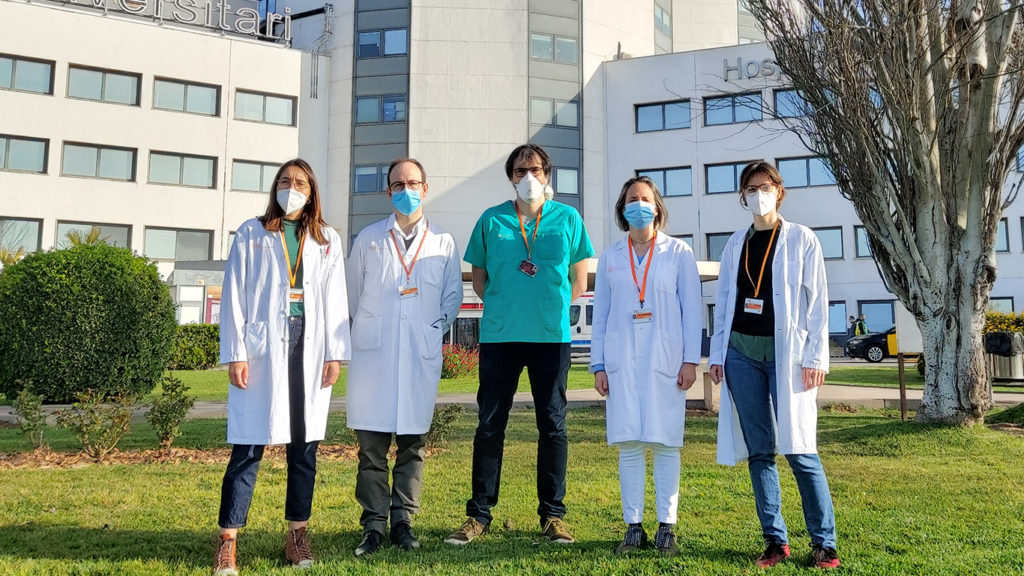The immune system has endogenous checkpoints that inhibit the immune response to prevent an excessive response that could damage the organism. Currently, multiple cancer immunotherapies target these checkpoints. The purpose is to block this negative feedback to allow and favor the patient’s own immune system to attack the tumor cells.
The emergence of these immune checkpoint inhibitors has forced oncologists to deal with new adverse effects. Despite presenting less than the more classical therapies, a wide range of neurological repercussions has been reported in 2-6% of patients, threatening life in some cases. Among these, we can find the brain inflammation, or encephalitis, the clinical characteristics of which are heterogeneous and not systematized. In addition, the risk factors, prognosis, and efficacy of the treatment remain unknown until now.
The Neuro-Oncology research group, led by Dr. Jordi Bruna, group leader at IDIBELL and coordinator of the functional unit in Neuro-Oncology of HUB-ICO, with CREST (Clinical Research in Solid Tumors), has characterized this complication with the analysis of their own cases and a systematic review of those published in the medical literature. The study concludes that this brain inflammation can manifest in two ways, each with a specific prognosis.
The first group of patients presents after treatment a diffuse inflammation of the brain and meninges that translates into headache, fever, and language impairments. These patients usually have a favorable prognosis. However, some patients develop more aggressive syndromes focused on specific regions of the brain. In these cases, the presence or absence of autoantibodies, which recognize brain proteins, is decisive to establish the prognosis.
The presence of autoantibodies against brain structures, as a collateral effect of the patient’s immune response against cancer, either induced by the new immunotherapy treatments or, present subclinically before and potentiated at the time of administration, is associated with a very unfavorable prognosis in this complication.
In summary, the study published in the journal JAMA Neurology indicates that the prognosis of encephalitis caused by treatment with immune checkpoint inhibitors is determined by two clinical manifestations combined with the presence of autoantibodies in the cerebrospinal fluid. These findings can help to make an early diagnosis and improve the management of patients with side effects of cancer immunotherapy.
The Bellvitge Biomedical Research Institute (IDIBELL) is a biomedical research center created in 2004. It is participated by the Bellvitge University Hospital and the Viladecans Hospital of the Catalan Institute of Health, the Catalan Institute of Oncology, the University of Barcelona and the City Council of L’Hospitalet de Llobregat.
IDIBELL is a member of the Campus of International Excellence of the University of Barcelona HUBc and is part of the CERCA institution of the Generalitat de Catalunya. In 2009 it became one of the first five Spanish research centers accredited as a health research institute by the Carlos III Health Institute. In addition, it is part of the “HR Excellence in Research” program of the European Union and is a member of EATRIS and REGIC. Since 2018, IDIBELL has been an Accredited Center of the AECC Scientific Foundation (FCAECC).

